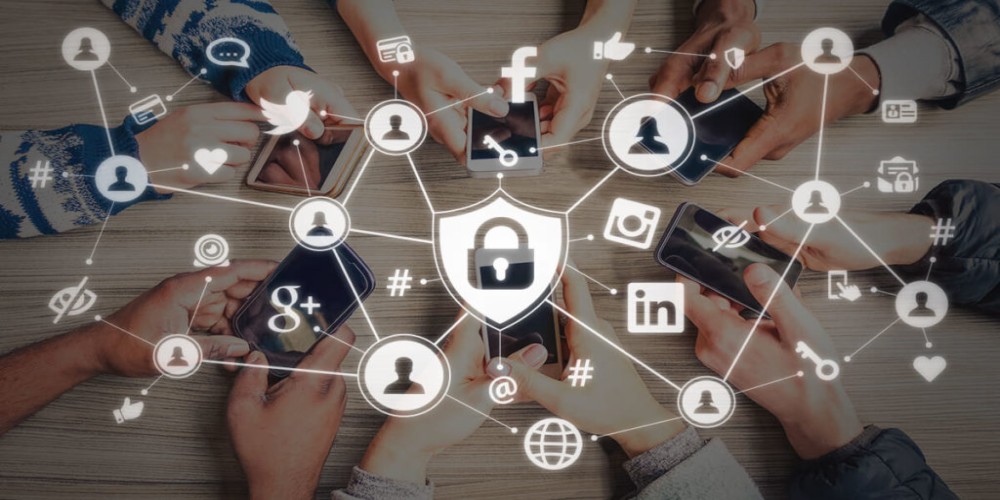Safeguarding Your Personal Space: Privacy Tips for Social Media Enthusiasts

In an era where sharing is synonymous with social interaction, maintaining privacy on platforms like Instagram and Facebook can seem like a daunting task. However, amidst the fun and connectivity these apps provide, it's crucial to remember that your personal data is valuable and vulnerable. By taking proactive steps to secure your privacy, you can enjoy social media without compromising your personal space. This article delves into the various measures you can take to protect yourself on social media apps, ensuring your online presence is both enjoyable and secure.
Mastering Privacy Settings: Your First Line of Defense

One of the most immediate actions you can take to protect your privacy is to familiarize yourself with the privacy settings offered by each platform. Social media apps like Instagram and Facebook have made significant strides in providing users with robust privacy controls, but these features only work if you know how to use them. Start by exploring the privacy settings section of your account, where you'll find a plethora of options tailored to manage who can see your posts, who can contact you, and how your data is used.
Facebook, for example, allows you to customize the audience for your posts, ranging from 'Public' to 'Friends' or even 'Only Me.' This granular control can also be applied to past posts, limiting the visibility of your older content to a smaller circle. Likewise, Instagram offers similar settings, enabling users to make their accounts private, meaning only approved followers can view their photos and stories. Additionally, both platforms provide the option to review tags before they appear on your profile, preventing others from associating you with content without your consent.
Curating Your Digital Footprint: Mindful Sharing Practices
While privacy settings are a critical tool, they are most effective when paired with mindful sharing practices. The information you choose to post on social media can reveal more about you than you may realize. From location check-ins to personal milestones, each piece of data contributes to your digital footprint. It's important to ask yourself: "Is this information necessary to share? Could it be used against me in any way?" By being selective about what you post, you can minimize your exposure and reduce the risk of identity theft or other privacy invasions.
To further curate your digital footprint, consider the long-term implications of your posts. Social media content can often be indexed by search engines or captured in screenshots, making it potentially accessible even after you've deleted it from your profile. Be cautious about sharing sensitive information such as your home address, date of birth, or financial details. Even seemingly innocuous posts can be pieced together to form a comprehensive picture of your life. Regularly reviewing your profile and removing outdated or unnecessary content can help keep your digital persona in line with your current privacy preferences.
Creating Strong Barriers: Passwords and Authentication

A strong password is your account's first line of defense against unauthorized access. Crafting a complex password that combines letters, numbers, and symbols can significantly enhance your account security. Avoid using easily guessable passwords, such as common words or sequences, and refrain from reusing passwords across multiple sites. Using a password manager can assist in generating and storing strong, unique passwords for all your accounts.
In addition to a solid password, enabling two-factor authentication (2FA) adds an extra layer of security. This feature requires a second form of verification, such as a code sent to your mobile device, to log in to your account. Even if someone manages to guess your password, without the second verification step, they won't be able to gain access. Both Instagram and Facebook offer 2FA, and it's highly recommended to activate this feature for an added peace of mind.
The Art of Discretion: Limiting Personal Data Sharing
While social media platforms require some level of personal information to function, you have control over how much you choose to share. Scrutinize the personal details you include in your profile, such as your email address, phone number, or workplace. Consider whether this information is necessary for your social media goals or if it can be omitted to preserve your privacy.
When engaging with various features like quizzes, games, or third-party apps on these platforms, be wary of the permissions you grant. These applications often request access to your personal data, which can be used for marketing purposes or, in worst-case scenarios, fall into the wrong hands. Always read the terms and conditions before agreeing to share your information, and regularly audit the apps connected to your social media accounts, revoking access to those no longer in use.
Navigating the Social Web with Awareness

Social media is an integral part of the modern digital landscape, offering unparalleled opportunities for connection and expression. However, the trade-off for these benefits doesn't have to be your privacy. By staying informed about the tools at your disposal and adopting a conscious approach to your online behavior, you can significantly mitigate privacy risks.
Remember, securing your privacy on social media is an ongoing process. As platforms evolve and new features are introduced, it's essential to stay up-to-date with the latest privacy advancements. Regularly reviewing your settings and practices ensures that your personal space remains protected, allowing you to navigate the social web with confidence and peace of mind.








